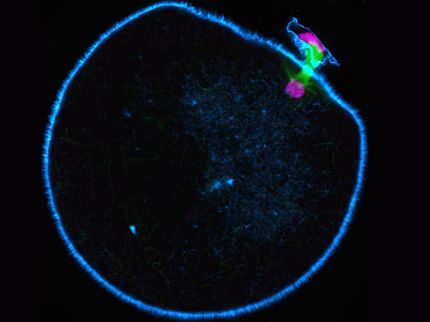Nano-engines that can go in reverse
Discovery has implications for cancer research and nanotechnology
Advertisement
Scientists at Ben-Gurion University of the Negev in collaboration with a group from George August University of Göttingen, Germany, have discovered an astonishing new feature of motor proteins that are essential for cell division. These “nano-engines” can, just like man-made automobiles, drastically modify their velocity and can even switch their directionality when loaded with a cargo. The results of the study have appeared in the EMBO Journal.
A central process in the development of organisms is cell division. During regular cell division, duplicated chromosomes of the mother cell are distributed into two daughter cells. This tightly regulated process is driven by specialized enzymes, so-called motor proteins, prominent among, which are the families of kinesins and dyneins. Until now it was believed that each member of those families is structurally programmed for a defined directionality on its track, the microtubules of the cytoskeleton. One class of motors generates motion towards the cell poles and another towards the cell equator.
The BGU group, led by Dr. Leah (Larisa) Gheber from the Clinical Biochemistry and Chemistry Departments and the Ilse Katz Institute for Nanoscale Science and Technology, BGU, and that of her colleague Prof. Christoph Schmidt from Germany have now been able to show that one type of cell division motor in yeast cells can move in both directions. Moreover, the motor protein can move towards the cell poles 10 times faster than all other known motors of the same family. The researchers observed this phenomenon with high-resolution fluorescence microscopy by which single molecules can be tracked, both in model systems and in living cells.
According to the researchers, the particularly interesting aspect of their findings is that the bi-directional motors switch exactly into the slow forward gear when they bind between two microtubule tracks in the middle of the cell where they help to push the chromosomes apart.
The new discoveries indicate the nanometer-sized molecular machines are much more powerful and versatile than was heretofore appreciated. A detailed understanding of biological motors during cell division is important, for basic cell science as well as for cancer research and for biologically inspired nanotechnology in medicine and industry.
Other news from the department science
Most read news
More news from our other portals
© 1997-2025 LUMITOS AG, All rights reserved


















































